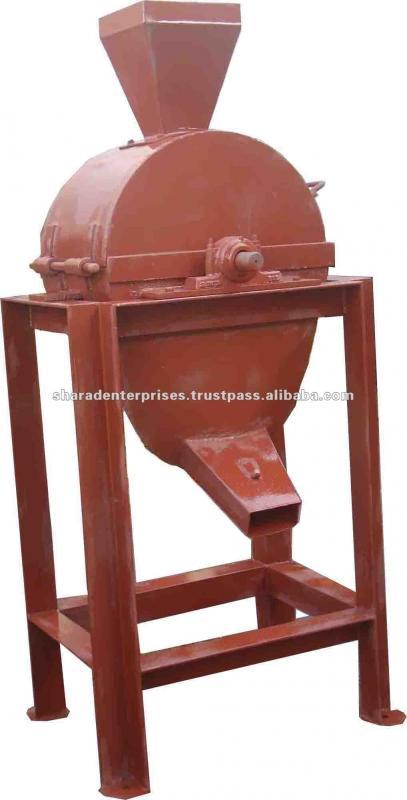-
Posts
1,903 -
Joined
-
Last visited
Content Type
Profiles
Forums
Downloads
Posts posted by teletiger
-
-
I just reported (90 day) 2 days late and got a 2000 Baht fine AND a stamp in my passport. Chiang Mai.
The guy behind me was within the 7 day window by 2 days and received a grilling about why, ?!
Regards. -
-
No KS. Mrs Sandman gave them the smack in the face with a cold kipper.
She denied them twice what she would have got.
Your attitude will ALWAYS lead to subservience through corruption.
Shame on you. 'Or die on your knees.
Regards. -
.Gov help in Thailand tends to be "2 for us. 1 for you".
Good for Mrs Sandman.Regards.
-
What to do with the leachate? I normally pour it onto the compost pile.
Regards. -
Strange world. We have a pen with Burmese fighting hens. Last week we had to split them as they were fighting in the traditional sense. Jumping at each other with flared neck feathers, the whole bit. We have a Rhode island rooster in there with them. He stays out of the way.

Regards.
-
Anybody tried the "flying fox" zip line out in Baan Nam Khong, Chiang Mai?
Thoughts would be appreciated.
Regards. -
Just a quick look....
RBH in a kindly mood.
"Food for thought...1. How long have you been here? If less than a year, you should consider staying for up to 2 years full time to see if you could fully adapt and to observe the way of life, charaters and personalities of the people you're going to live with.
2. If you're investing, you'll need to be here hands-on full time with or without hired farmhands, it is not a considerably wise move to leave it with the wife, in-laws, etc... Because work need to be done right and done diligently and according to many feedback by PM from members here, things always turn out wrong or went south when they're not around most of the time or the in-law are not serious about the whole investment (not their money) and can't be bother with schedules. How about yourself, are you ready to do the learning curve? It take about 2 years to learn the skill of this trade and you may not get paid during the trial and error stage.
3. Lets talk about fish farming, do you have a pond yet? if no, can the intended pond site for excavation holds water (soil type) or have sufficient water year round... or do you have to fight for your share of water when the villagers of neighbouring fields full of paddy are tightening their grip by blocking the stream and diverting the flow of water into their cash crops?
4. You need to find out which supplier is reliable for fingerling stock, about feed grade, about rearing seasons, about market volatility, about supply and demand, about farmgate prices, about harvesting, about pond clearing. And before all this, there's also knowledge about soil conditions, water conditions, PH level, remedies, effective water depth, effective pond designs and construction, weather/climate, pathogens, diseases and controls, temperatures and anaerobic cycle, pond maintenance...
5. Manpower...who will be working, who will be guarding ? In my case, daytime i work my farm, at night i live in the farmhouse by the ponds, literally beside the ponds, my dogs guard them at night while i sleep inside my quarter, they barks and I'll need to wake up to check, no point to hire a guard who sleep through the night and not caring even if something bad is going on like fish theft. (get paid to sleep? at ฿2'000 he think so absolutely !)
6. Volume counts ! You will not be able to survive doing 10'000 or 20'000 or even 50'000 fishes per cycle let alone year round. I can't even survive farming 100'000 fishes/cycle. Currently I'm doing 535'000 fishes/cycle, ROI is roughly ฿1.6 mil/year (3 cycles). Initial capital is ฿3.8mil... or about ฿70'000 investment [2013] for fingerlings and grade 'A' feed for per 10'000 fishes and the return profit is between ฿0.70-฿1 for newly start out/amateur fish farmers. So truthfully you will not be able to survive if investing with small capital, investing BIG is a risk for newbies. To solve this problem/problems, you will need to have a backup monetary saving or supplementary income that will help to keep you survive for 2 years. A pro/skill farmer makes between ฿1.3-฿2 per fish.
7. Lastly... be firm, be humble, be nice, be polite and be kind to villagers. Keep you nose clean and stay under the radar (low profile). There will be people who like you and people who hate you (out of envy or jealousy). You do not want the worse thing that could happen to your live stock - Sabotage.
Happy farming and cheers"
-
 1
1
-
-
Yes, there is a fishery 101. Red Bull Horn is the man to ask.....though he doesn't suffer fools gladly.
Here's the latest reincarnation....
http://www.thaivisa.com/forum/topic/623095-fish-farms-201/
-
You mean this tree?
http://tcbp.net/cZk
Regards. -
We paid 5 baht each for the bottles. (negotiated down from 6 Baht due to the size of the order)
Black oysters are definitely more popular in the markets here than whites. We find whites quite hard to sell locally and have to send them in to CM to a wholesaler. All the blacks are sold locally to resellers.
White oysters are much more prolific, will grow even in the cold here and actually weigh about 20% more than the black ones on a comparable basis.
Nobody is robbing us, these prices are what we sell them for.
We have another separate 10K operation (black oysters) where everything is sold very locally at 50 Baht. Going around our local Talat nats the resellers are typically charging between 70 and 100 Baht per kilo, in 200/250 gm bags.
We should start going into profit at the end of next week. How long the bottles last after that is anyones guess.Regards.
-
Somebody on the other mushroom thread was wondering about how to average 50 kilos per day with mushrooms. Here's a chart showing 30 thousand bottles. 15 K black oyster and 15K white oyster.They all went in over a period of 42 days.
On day 58 we swapped out 1500 dead bottles for new ones.
So far on the 86th day we've taken 135K Baht for 3223 kilos.We get 45 Baht for the black oysters and 35 Baht for the whites. Average for both so far is 42 Baht, and over the period we've averaged 39 kilos per day.
So for the original question I'd say 40K bottles would get you 50 kilos per day.I'll post other info and photos later.
Regards
-
 2
2
-
-
It's a papaya. They're normally flowering by this stage. Try feeding it.
Regards.
-
http://www.permies.com/t/17936/organic/Soil-Inoculant-Fix-Nitrogen-legumes
Would EM do the same thing?
Regards.
-
There was a Brazilian experiment done a few years ago on pre-soaking seeds in different strengths of EM prior to planting. The best brought germination rates from 60% up to 90%.
Regards.
-
I saw a video of a Japanese experiment on snake repellents. They had a pit full of different venomous snakes and walked a mock-up dummy through the pit. Most things didn't work, the dummy was bitten left, right and center. Then suddenly this one dummy had them all running, (slithering)... They then tried to aggravate the snakes with this dummy, chasing them around the pit. A few snakes stood their ground and went to bite the dummy and at the last second retreated. The secret? Petrol sprayed on to the dummy'y trousers.
I tried looking for the video again, but no luck.
Regards. -
Great snail/slug killer.
Regards. -
Most local coire does contain high levels of salt, sodium chloride, (NaCl) and needs washing, if using as is. Best to compost it first.
Regards.
-
-
'And if anyone has an interest.....
Yes, it's urea, and you throw litres of it away every day.
Humanure.
http://www.thaivisa.com/forum/topic/251960-composting-compost-teas-and-humanure/
What happened to Jandtaa? 5 star gardener, top chef and top bloke.
-
 1
1
-
-
Any idea on concentration Soidog?
Regards. -
Improvisation is one of the many things Thai people are good at.
Put a pre-filter on your irrigation system.
Use a pressure washer, they've got great filter systems on them.
One thing you will find, in abundance, in Thailand is good manners.
Regards.-
 2
2
-
-
Try Rice555. He's in Korat. (N. Ratch.) He will know a US firm that will send them, if he hasn't got any of his own.
Regards. -
Of course, Oil.
Then light a match to burn off the residue.
Poof...
Non edit: I really have done it this time, haven't I?\-
 1
1
-






I missed 90 days reporting...
in Thai Visas, Residency, and Work Permits
Posted
It also gets stamped into your passport.
Regards.